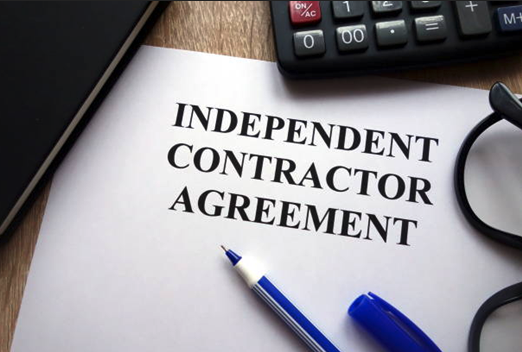Do Gig Economy Workers Have Access to Workers’ Compensation?
Gig economy platforms need to be aware of the general obligations under workers’ compensation law for employers, according to Safe Work Australia.|Gig economy platforms need to be aware of the general obligations under workers’ compensation law for employers, according to Safe Work Australia.

Gig economy platforms need to be aware of the general obligations under workers’ compensation law for employers, according to Safe Work Australia.
The gig economy is a growing part of Australia’s workforce with over 100 platforms currently operating in person, remotely or online within Australia.
The most common platforms are transport (ride sharing) and food delivery, though other platforms service odd jobs, one-off domestic tasks, care services, professional services like web design, graphic design, coding, photography, translation and clerical or administrative work.
Safe Work Australia recently issued a fact sheet to encourage gig workers to enquire into their workers’ compensation entitlements and to inform platforms of their obligations under workers’ compensation laws.
All employers must have workers’ compensation insurance for their workers, and whether a platform owner is an employer under workers’ compensation law will depend on the working arrangements and the rules under the relevant workers’ compensation scheme.
Workers’ compensation schemes in Australia will consider a range of factors to decide if a gig worker is employed by the platform and eligible for coverage by workers’ compensation insurance, and schemes may consider certain factors such as:
- Control over whether to take on work
- Ability to choose working hours
- Provision of tools and equipment
- Arrangements for payment of income
- Who has responsibility for the cost of fixing any faults or repairing damage?
- Can work be delegated or is a worker required to do the work personally?
If a scheme finds that a gig worker is in fact employed by a platform owner, the scheme may seek to recover insurance costs from the platform owner.
For gig workers who are hurt in the line of their work, the fact sheet said their access to workers’ compensation may depend on whether they are an employee or an independent contractor.
“It may be helpful to contact your platform owner to ask them to confirm your employment status in writing,” the fact sheet said.
“Many workers in the gig economy are engaged by platforms as ‘independent contractors.’ Independent contractors are not usually covered by workers’ compensation and instead have other types of income and injury insurances available to them.”
Coverage for workers’ compensation will depend on the type of work done and how the worker is engaged by the platform owner, and workers’ compensation schemes may consider certain factors such as:
- Does the worker have control over whether to take on work?
- Can they choose the hours that they work?
- Do they need to provide their own tools and equipment?
- How are they paid income?
- Are they responsible for the cost of fixing any faults or repairing damage?
- Are they required to do the work personally or can they delegate the work to someone else?
“If you are unsure whether you are covered by workers’ compensation you should consider contacting the relevant workers’ compensation authority (details below) or obtaining independent advice to confirm whether you are entitled to workers’ compensation coverage if injured,” the fact sheet said.
“If you are not covered for workers’ compensation and the platform owner does not have an injury or accident policy, you will need to cover your own costs for medical and rehabilitation expenses.”
Article originally published by the Australian Institute of Health and Safety.





